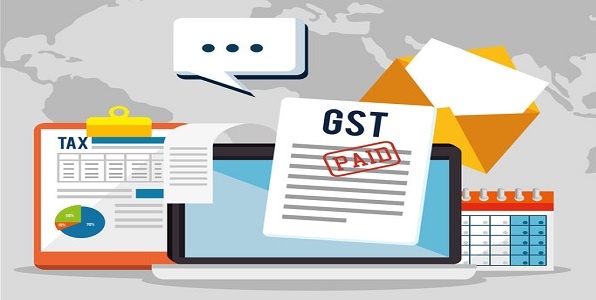During preparation and filing of GST Annual Return (GSTR-9) and GST Audit (GSTR-9C), we all have experienced about reconciliation of sales reported in GST returns and sale / income reported in Balance Sheet. Moreover, reconciliation of Input Tax Credit (ITC) availed in GSTR-3B and ITC reflected in GSTR-2A. Apart from such sales and purchases reconciliation in GSTR-9 and GSTR-9C, nowadays, GST officers have started sending e-mails regarding system generated differences among the following:
1. GSTR-1 v/s GSTR-3B
2. GSTR-1 v/s E-Way Bill Report
3. GSTR-2A v/s GSTR-3B
4. ITC available on RCM as per GSTR-3B v/s RCM credit reflected in GSTR-2A
5. IGST credit on import as per GSTR-3B v/s IGST paid as per ICEGATE
Apart from these reconciliations, as amended from October 2019, ITC for the respective month shall be restricted to “120% of eligible ITC reflected in GSTR-2A” for the particular month. This provision has created lot of confusions, increased the workload and most importantly, increased the cash outflow.
This article is an attempt to share various scenarios for reconciliations and probable reasons for mis-matches. All reasons discussed hereunder are not exclusive but the cases and reasons which I have come accrossed during GST audit and scrutiny.

RECONCILIATION 1 – GSTR-1 V/S GSTR-3B
1. Sales entries finalised after filing of GSTR-1
2. Debit Notes / Credit Notes impact given after filing of GSTR-1
3. Last month adjustments impact given after filing of GSTR-1
4. Employee recovery not reported in GSTR-1 but liability finalised at the time of filing of GSTR-3B
5. Non-availability of adjustment of Credit Note due to non-availability of balance in GSTR-3B
6. Adjustment of advances after filing of GSTR-1
RECONCILIATION 2 – GSTR-1 V/S E-WAY BILL REPORT
1. Job Work Challans not reported in GST returns but e-way bill generated for the same
2. Export made without IGST but e-way bill is generated with IGST
3. Where only Delivery Challan is prepared –
1. Goods sent on approval
2. Exhibition within State
3. Stock transfer within state
4. Goods supplied for rent / lease
4. Non-generation of e-way bill if value is below threshold limit
5. Supply of exempted goods where e-way bill is not required to be generated
6. Tax Invoice cancelled but e-way bill cannot be cancelled (time limit of 24 hours)
7. Preparation of Debit Note / Credit Note for rate difference which are reported in GST returns but no question to generate e-way bill.
RECONCILIATION 3 – SALE / REVENUE AS PER BOOKS V/S GST RETURN
1. Inter-state stock transfer
2. Foreign exchange gain / loss
3. Purchase return treated as sale
4. Fixed asset sale (only profit / loss is being reported in Other Income)
5. Sales Credit Note treated as ITC
6. Recovery from employees not a part of revenue but “outward supply”
7. Adjustment of advance
8. Duty drawback
9. Interest on any deposits
10. Any statutory refunds
11. Job work goods not returned within one year are to be added in “outward supply” liability
12. Non-payment to creditors within 180 days to be added in “outward supply” liability
13. Supply of goods under warranty (where such transaction is treated as outward supply)
14. Unbilled revenue
15. Freight/packing/insurance not covered in sale value
16. Creditors written back
17. Non-GST / exempted income
1. Sale of electricity
2. Renting of house / guest house
3. MEIS Script sale
4. Sale of shares / securities
5. Donation / sponsorship received
18. Subsidy received
19. Discount received
20. Insurance claim received
21. Adjustment of deposit to be treated as “consideration”
RECONCILIQATION 4 – GSTR-2A V/S ITC CLAIMED AS PER BOOKS (GSTR-3B)
1. Incorrect GSTIN
2. Incorrect invoice number
3. Quarterly return filers – this results into deferment of ITC
4. Non-filers of GSTR-1
5. Late filers – this results into deferment of ITC
6. Others GSTIN reported in our 2A
7. Month end / in-transit transactions – most common but most important point for reconciliation. This is applicable where supplier has issued tax invoice say on 28th of the month but goods are actually received by the customer in the next month.
8. Purchase return treated as sale.
As mentioned, all reasons discussed above are not exclusive but the cases and reasons which I have come accrossed during GST audit and scrutiny. Considering the current scenario in GST, I strongly feel that the future of GST IS ALL ABOUT RECONCILIATION.
Author Details –Mr. Manas Joshi, Director at Proficient Partners Consultancy Pvt. Ltd. / GST Committee member of MCCIA and can be reached at manas@ppcplindia.com






Very Nice good information of GSTR-9 & GSTR-9C
Very nice & valuable information Sir…
Very Nice Article Sir…
Good article